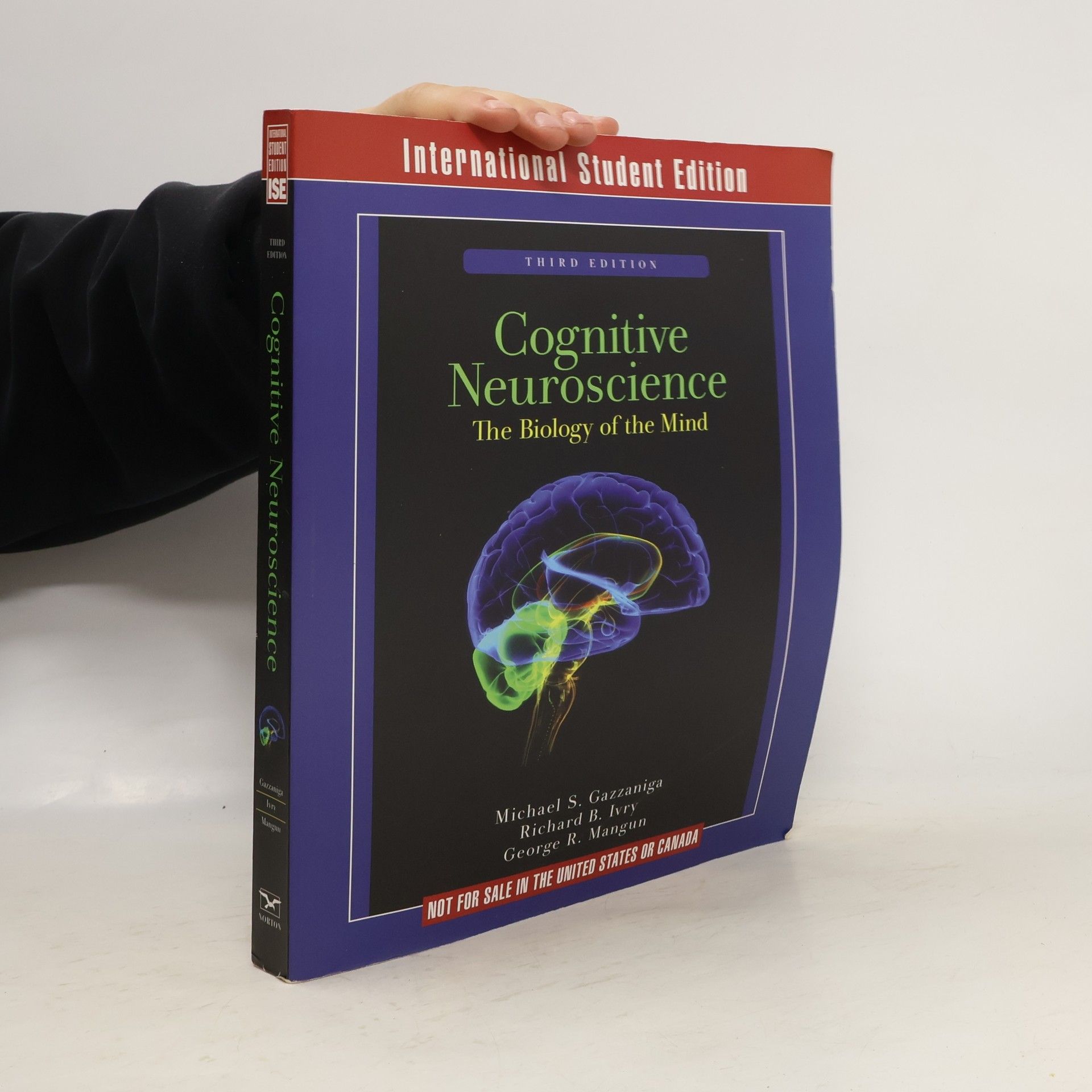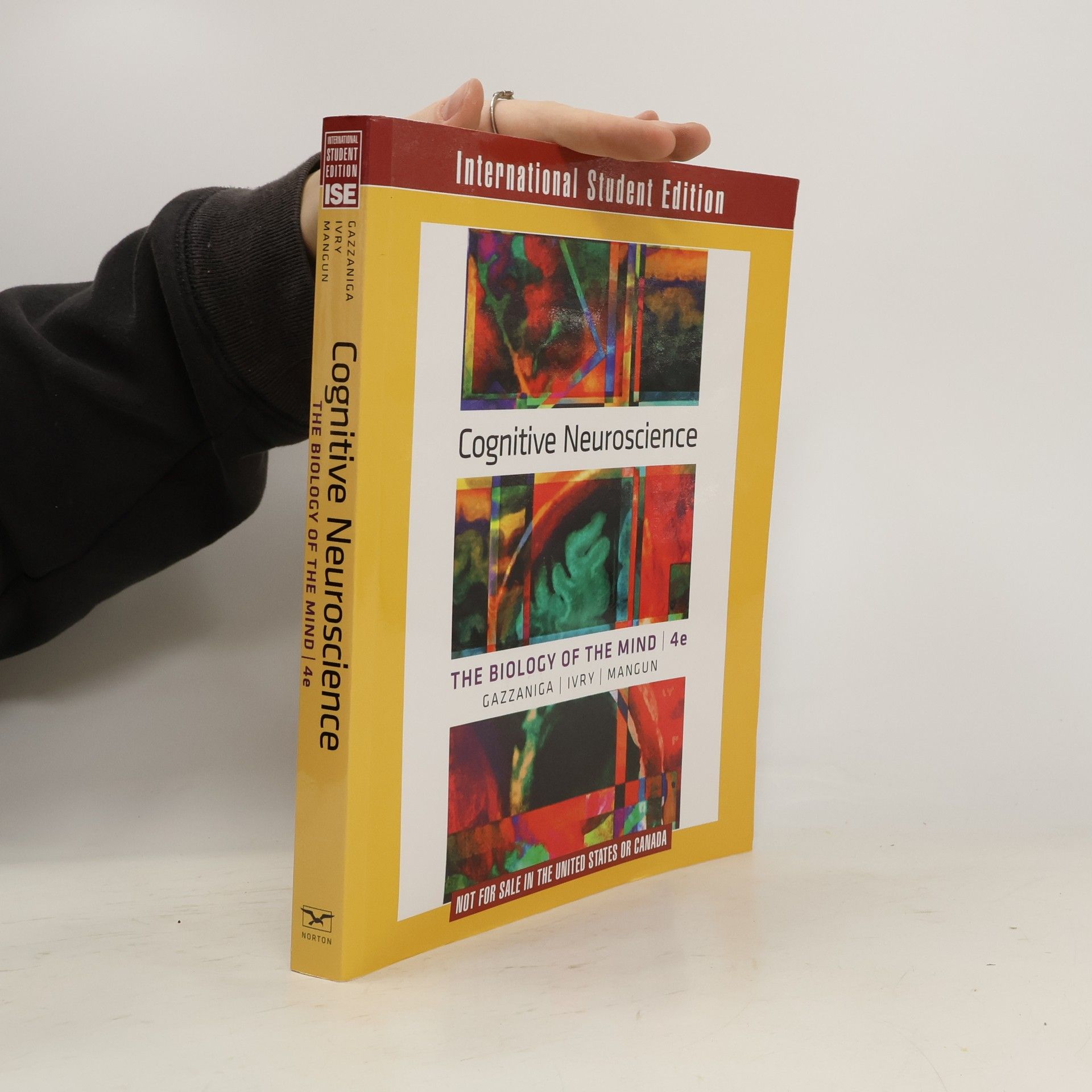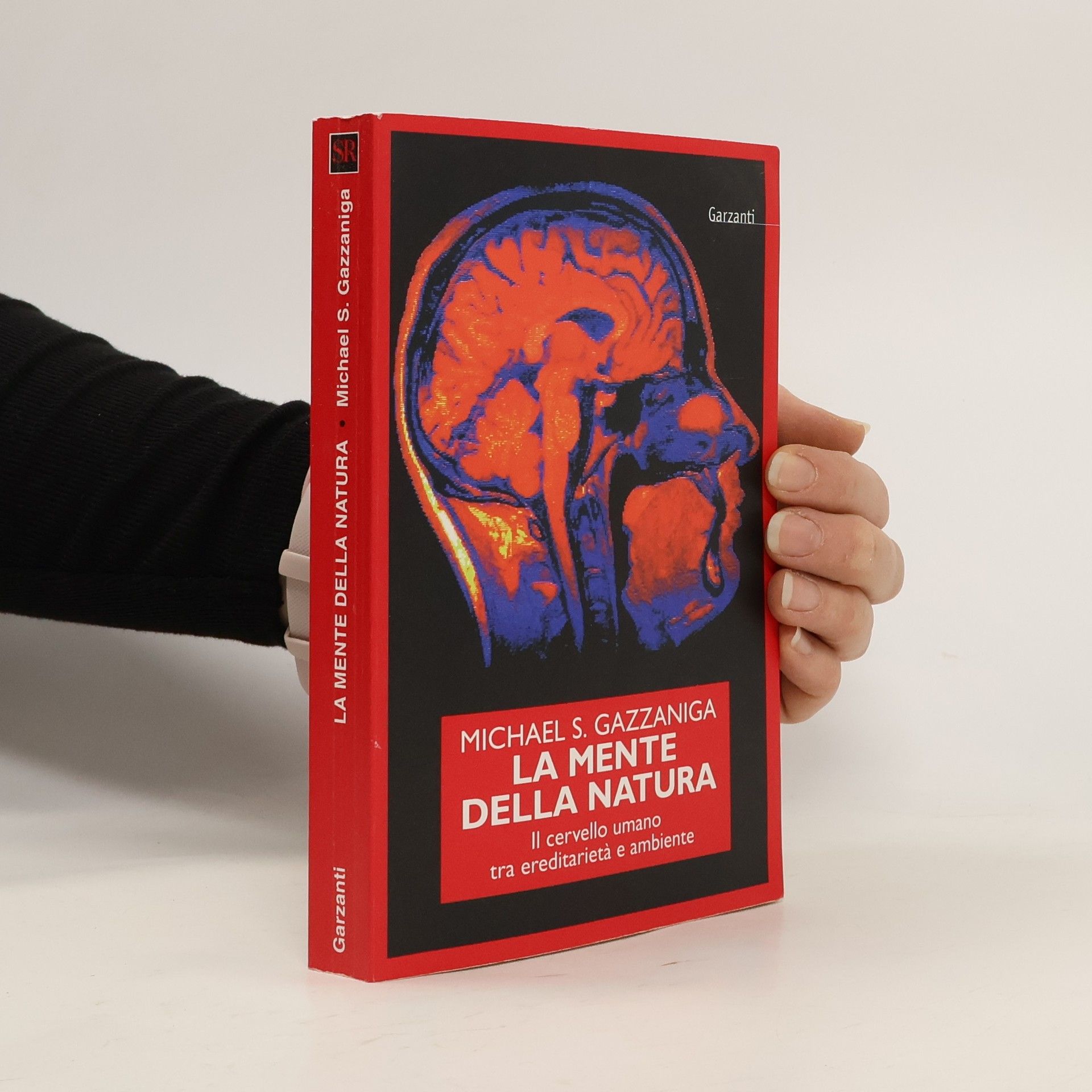La mente della natura. Il cervello umano tra ereditarietà e ambiente
- 278pagine
- 10 ore di lettura
Michael S. Gazzaniga si addentra negli intricati meccanismi del cervello umano, esplorando le complesse funzioni che governano i nostri pensieri, emozioni e comportamenti. Come neuroscienziato di spicco, il suo lavoro colma il divario tra ricerca tecnica e intuizioni accessibili, illuminando i misteri della cognizione. Offre ai lettori un viaggio affascinante nella mente, esaminando come essa funziona, interagisce con il corpo e risponde all'ambiente. I suoi scritti stimolano la curiosità sulla coscienza e sulla profonda relazione tra il nostro mondo interiore ed esperienze esterne.







This fifth edition serves as a comprehensive reference in cognitive neuroscience, incorporating the latest advancements in the field. It explores the intricate connections between the nervous system's structural and physiological mechanisms and the complexities of the mind. With entirely new content, it continues to set benchmarks for understanding the biological foundations of cognitive processes, making it an essential resource for researchers and students alike.
What happened along the evolutionary trail that made humans so unique? In his accessible style, Michael Gazzaniga pinpoints the change that made us thinking, sentient humans different from our predecessors. He explores what makes human brains special, the importance of language and art in defining the human condition, the nature of human consciousness, and even artificial intelligence.
The Biology of the Mind
Modeled on classic volumes that shaped an evolving field, this major reference documents and defines cognitive neuroscience. With ninety-two original contributions, it offers comprehensive coverage from the molecular level to human conscious experience, exploring the relationship between the brain's structural and physiological mechanisms and the psychological reality of the mind. Key sections include Molecular and Cellular Plasticity, Neural and Psychological Development, Sensory Systems, Motor Systems, Attention, Memory, Language, Thought and Imagery, Emotion, Evolutionary Perspectives, and Consciousness, each led by distinguished editors. This handbook is an invaluable resource, addressing the challenges of a rapidly growing discipline with a clear focus: intelligible, up-to-date theories of mental processes grounded in the latest brain science findings. The integration within this volume lays a foundation for future cognitive neuroscientists. Esteemed figures like George A. Miller and Sir Roger Penrose commend its comprehensive and authoritative articles, emphasizing its importance for anyone wishing to stay informed in this dynamic field. Eric R. Kandel highlights its thoughtful selection of reviews relevant to current research, making it a much-needed resource for students and professionals alike.
The Biology of the Mind - Third Edition - International Student Edition
This third edition uses an interdisciplinary approach to understanding how the human mind works. Throughout the text, clinical case studies are presented to humanise the scientific content.
This third edition uses an interdisciplinary approach to understanding how the human mind works. Throughout the text, clinical case studies are presented to humanise the scientific content.
Unraveling the Mystery of How the Brain Makes the Mind
How do neurons turn into minds? How does physical "stuff". Atoms, molecules, chemicals, and cells- create the vivid and various worlds inside our heads? The problem of consciousness has gnawed at us for millennia. In the last century there have been massive breakthroughs that have rewritten the science of the brain, and yet the puzzles faced by the ancient Greeks are still present. In The Consciousness Instinct, the neuroscience pioneer Michael S. Gazzaniga puts the latest research in conversation with the history of human thinking about the mind, giving a big-picture view of what science has revealed about consciousness
Exploring the intricate interplay between biology, psychology, and social dynamics, a leading neuroscientist delves into the fundamentally social nature of humanity. The author presents insights into how these interconnected aspects shape our understanding of the human condition, offering a comprehensive perspective on what it means to be human.
The prevailing orthodoxy in brain science is that since physical laws govern our physical brains, physical laws therefore govern our behaviour and even our conscious selves. Free will is meaningless, goes the mantra; we live in a 'determined' world. Not so, argues the renowned neuroscientist Michael S. Gazzaniga as he explains how the mind, 'constrains' the brain just as cars are constrained by the traffic they create. Writing with what Steven Pinker has called 'his trademark wit and lack of pretension,' Gazzaniga ranges across neuroscience, psychology and ethics to show how incorrect it is to blame our brains for our behaviour. Even given the latest insights into the physical mechanisms of the mind, he explains, we are responsible agents who should be held accountable for our actions, because responsibility is found in how people interact, not in brains. An extraordinary book, combining a light touch with profound implications, Who's in Charge? is a lasting contribution from one of the leading thinkers of our time.
Widely considered to be the father of cognitive neuroscience, the author examines "lifespan neuroethics." He also addresses the medical ethics challenges confronting modern society at the dawn of the 21st century